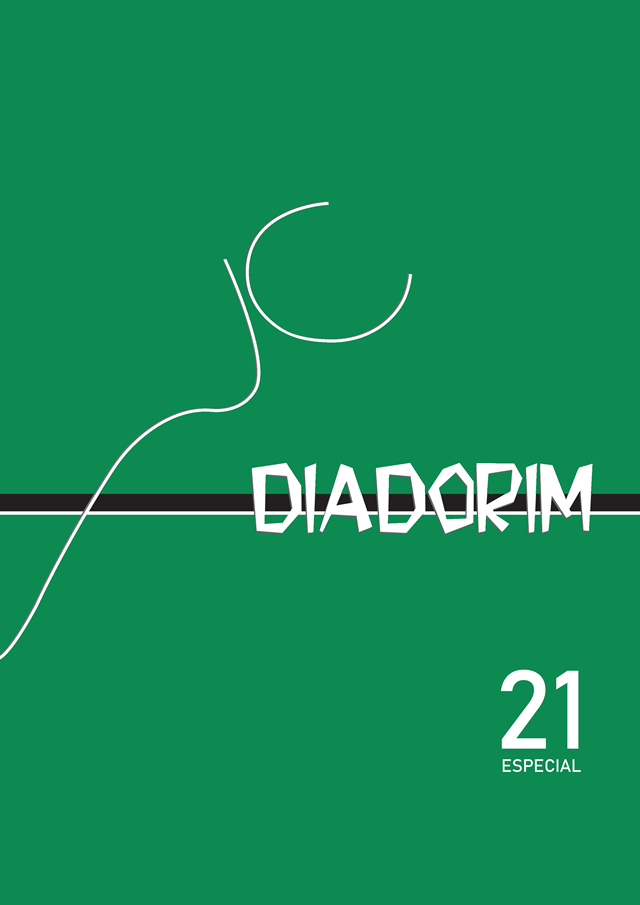THE AWAKENING AND THE VOICES IN NIKETCHE: UMA HISTÓRIA DE POLIGAMIA, BY PAULINA CHIZIANE
DOI:
https://doi.org/10.35520/diadorim.2019.v21nEspa29078Palavras-chave:
Paulina Chiziane, women, orality, feminine voicesResumo
Questioning the positions occupy in a patriarchal society is one of Niketche's main reflections: Paulina Chiziane's story of polygamy. From the dialogues with the theories of Spivak, Sandra Gilbert, Susan Gubar, one can see how there is a need for women to have their place of speech, thus demonstrating a change in their situation of subordination. Paulina Chiziane notes that there is no place for women where they can talk and be heard and, therefore, writes a narrative with performed and told by a woman. With her writing, Chizian breaks the objectification oj women made by male literature. It is observed that the struggle for a speech space happens both in the real world, undertaken by the writer, and in the literary universe, performed by Rami. The awareness of having her voice silenced is driven by the anguish the character (and we dare say the writer too) feels as she becomes aware of her subordinate place in society. It is also noted that the use of popular sayings, oral knowledge and proverbs would be a way to bring women into a prominent position and also preserve the oral tradition and make an appreciation of African culture.
Downloads
Publicado
Edição
Seção
Licença
Transferência de direitos autorais - Autorização para publicação
Caso o artigo submetido seja aprovado para publicação, já fica acordado que o autor autoriza a UFRJ a reproduzi-lo e publicá-lo na Diadorim: Revista de Estudos Linguísticos e Literários, entendendo-se os termos "reprodução" e "publicação" conforme definição respectivamente dos incisos VI e I do artigo 5° da Lei 9610/98. O artigo poderá ser acessado pela internet, a título gratuito, para consulta e reprodução de exemplar do artigo para uso próprio de quem a consulta. Essa autorização de publicação não tem limitação de tempo, ficando a UFRJ responsável pela manutenção da identificação do autor do artigo.

A Revista Diadorim utiliza uma Licença Creative Commons Atribuição-NãoComercial 4.0 Internacional (CC BY-NC 4.0).

